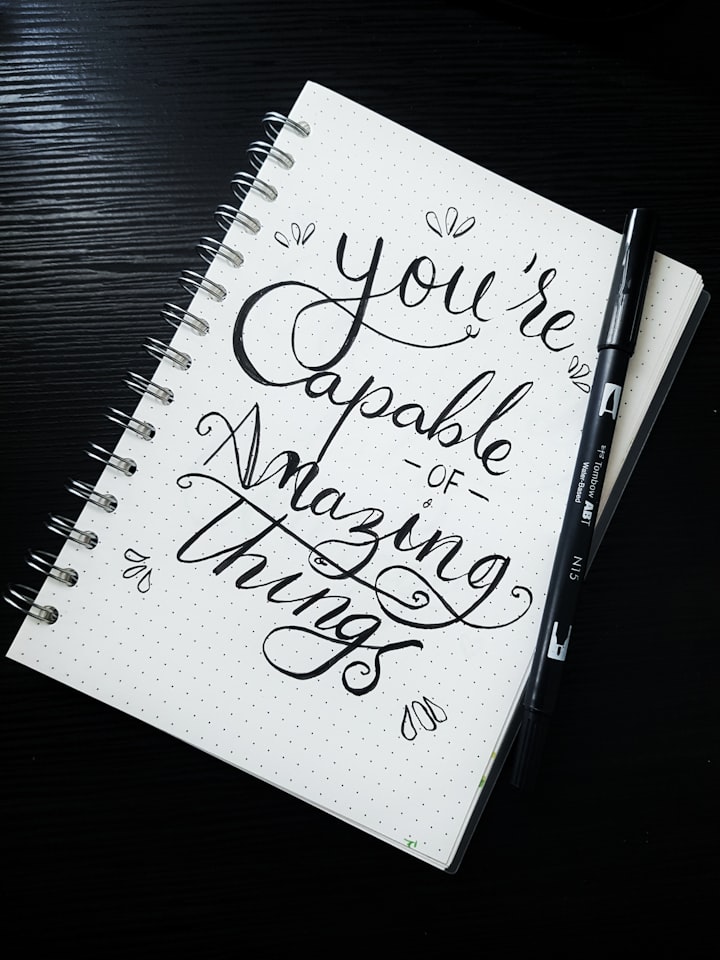Dear Vocal Creators: We Can Fight Misinformation!
And you, reader, can help too

We are so tired of misinformation and fake news that even though it’s all words and ideas, they are taking a hit on our bodies. We have information fatigue, news fatigue, stress, and more.
Unfortunately, though, misinformation is a huge problem with even other real-life effects: people stop getting vaccinated, they join extremists groups and more. Now, we can’t just blame the internet. Of course, the advent of social media has made it much easier for conspiracy theories and alt-right ideas to spread, but it is the same channel where good “citizens of the web” can spread knowledge, compassion, and find good connections.
In the past, I have written about how those we call the “unpersuadable” are much better than us in influencing people with hesitant opinions. They have powerful messaging capable of recruiting scared parents to the anti-vax side, they build strong communities that lure in isolated and vulnerable individuals, and often…they scare the shit out of people who have doubts. Even climate denial founds fertile terrain when human nature makes it so that we would convince ourselves of anything not to have to take action, or feel responsibilities.
Now it’s time for scientific communities, writers, governments and good-hearted people alike to find our own persuasive messaging.
We know that “facts and stats” don’t always work when trying to convince people to understand our positions. But maybe they could if we mixed them up with strong emotional stories, messages, and courses of action (when we are trusted sources).
Bloggers, it’s our turn too!
In many scientific and behavioural fields there is a growing — and much needed — trend. It’s called knowledge translation.
Knowledge translation (KT) refers to the processes involved in getting research out of the laboratory, the scientific journal, and the scholarly environments and into the hands of individuals and organisations who can put it to use. The health professions, such as medical, nursing, pharmacology, rehabilitation, physical therapy, and public health, are the most commonly employed for knowledge translation. But any other professional field can adopt the practice.
The “practical user” may be a medical practitioner, a teacher, a writer, an occupational or physical therapist, a lawmaker, or a parent, depending on the sort of study being translated. In fact, depending on the topic, anyone could be considered a practical user.
What good is scientific research if only other scientists and academics have the ability to understand it and put it to use?
And let’s make no mistake. Is not because lay people are stupid. The fact is, we cannot all be fluent in all disciplines’ languages and jargon terms. Much like not all lawyers will understand engineering jargon, and vice-versa. In fact, heavy use of jargon or statistics is usually the downfall of wide-reaching science communication.
So why do we expect the wider society to understand or adapt quickly to scientific findings when they are not given a fair chance to understand them?
Sure, it is not just our role as bloggers to disseminate knowledge (and not “fake news”) in understandable and persuasive terms. In fact, this should mostly be the work of governments, health departments, universities, etc.
But we are here. We are writers. And we can do our part.

People, both informed and misinformed, are worthy of empathy. Always. But this is not only the right position to take when considering human morality. In fact, being empathetic and open-minded when considering why people arrive at certain beliefs, is the most useful way if we hope to change their minds.
Might not always work, of course, but it stands a better chance than just calling anti-vaxxers, vaccine-hesitant, climate deniers and conspiracy theorists stupid idiots, and so on. And yes, some are just idiots. But many get drawn into beliefs out of fear, desire to protect, isolation, derision(imagine asking your doctor if a vaccine has side effects and being met with scoffs), and more often than not, need to belong somewhere and with someone.
So as bloggers, and readers, what can we do?
In short, we can:
- approach topics with sensitivity and an open mind, even when we can support our positions with hard data
- keep each other accountable when we see the spread of misinformation happening (even you, dear reader, can help with this point)
- learning how to have constructive debates
- spread the good knowledge we learn about, but using storytelling, emotions, and very little jargon (depending on who your reader is).
One more reason to use empathy and an open mind when writing about political issues, health, mental health, and science is that we really never know when we are actually wrong. Science too, usually gets proven wrong, or updated for the better. Now, of course, I am not telling you not to believe in science: please do! But let’s keep in mind that we all have certain degrees of uncertainty, and we can all be wrong at some point. Not to speak of political issues: how many right-winged people believe leftists to be a bunch of naive hippies? How many progressive liberals believe all conservatives to be fascists, rednecks, or straight up idiots?
But mostly, when writing about these topics, using empathy, emotional language, and other persuasive tools of communication have a better chance of getting through some groups than trusting that facts and statistics will do the job. When people are convinced of something, they do not operate like a scientist looking to find flaws in their opinion. In fact, all of us in this case act more like a lawyer defending our position. And it’s natural. But knowing our biases might help build a better future with less misinformation where the field is one of peace and everyone is welcome to read and debate.
This does not mean that all information is worth the same amount of attention. Thus, when we encounter misinformation in communications from other writers, let’s hold them (or hold…me) accountable. And this responsibility stands if you are not a writer too. As readers, you have, on many platforms, the power of commenting and — depending on the seriousness of the claims — reporting. And we should do it.
When we encounter positions that differ from ours — in others’ writings, at the dinner table, or in our comment sections — remember that the goal of a good conversation is not winning but progress in knowledge. You want to listen and be heard. This is no easy task. Or better, it is easy to do, but not easy to put ourselves in the right midframe for it. I am a strong-headed Italian, who grew up having debates at my grandparents’’ table where who was the loudest would win the debate. But, I have learned with time, and with Julia Dhar’s TedTalk, that conversations are climbing walls, adapting to the terrain as we progress, with a clear goal in mind: we walk away having learned something.

Therefore, dear vocal writers: let’s use our skills for the greater good. Why not?
We are after all masters — or one would hope — of storytelling. Trained in emotions, and not always keen to use graphs and stats ourselves. And that might just be what works.

Hi, I'm Jess, a Master student of Applied Psychology at the University of Melbourne. You can buy me a coffee at : https://ko-fi.com/squeezetheavocado but only if you want to :)
About the Creator
Reader insights
Nice work
Very well written. Keep up the good work!
Top insights
Heartfelt and relatable
The story invoked strong personal emotions
Easy to read and follow
Well-structured & engaging content
On-point and relevant
Writing reflected the title & theme
Masterful proofreading
Zero grammar & spelling mistakes
Eye opening
Niche topic & fresh perspectives
Expert insights and opinions
Arguments were carefully researched and presented
Compelling and original writing
Creative use of language & vocab







Comments
There are no comments for this story
Be the first to respond and start the conversation.